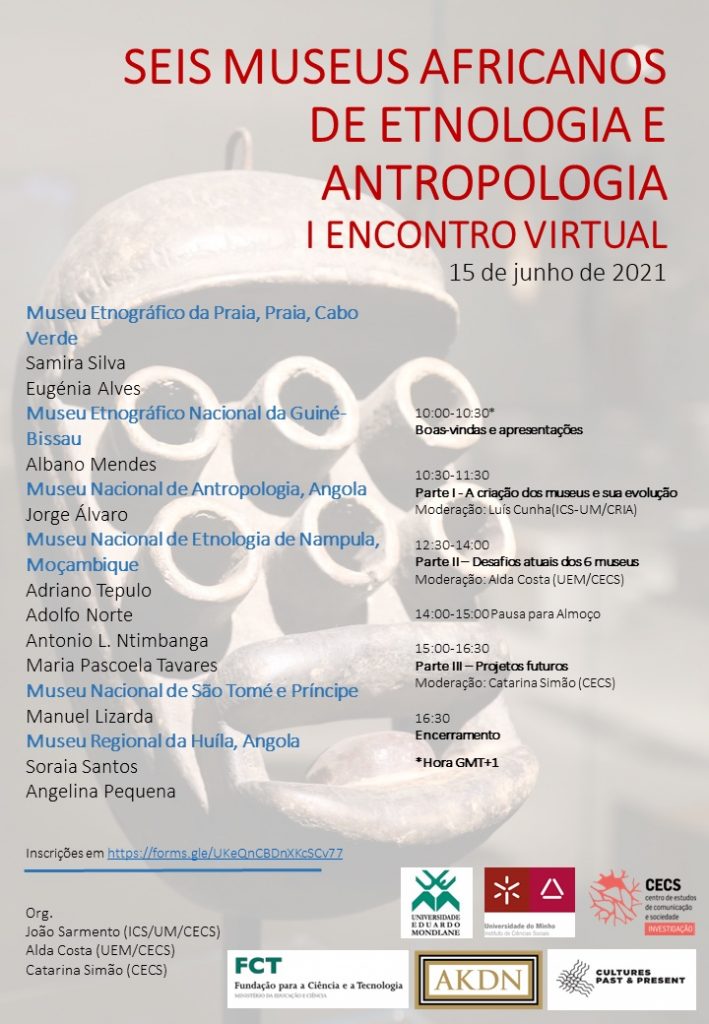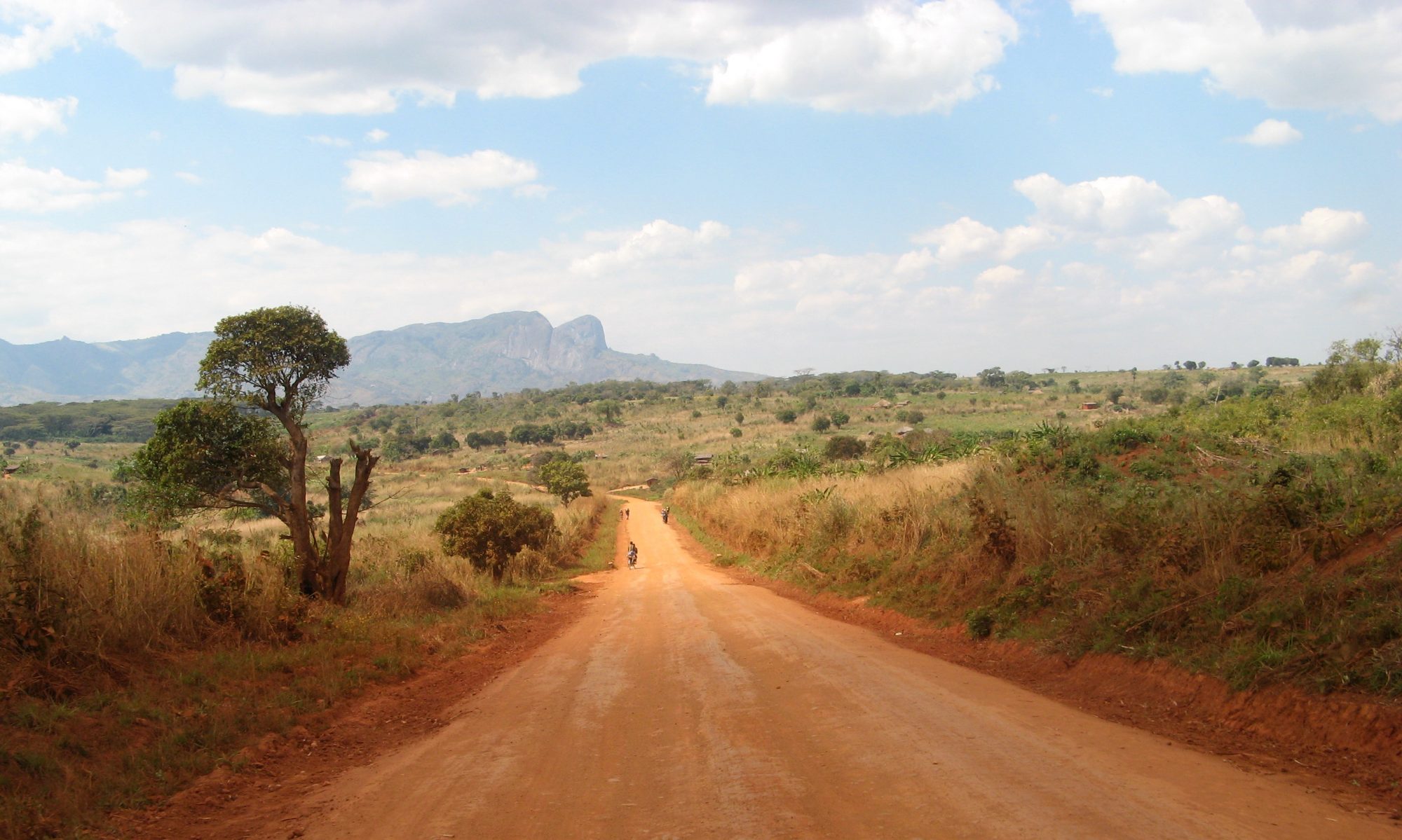Over the 15th of June, the 1st Virtual Meeting – Six African Museums of Ethnology and Anthropology was held, bringing together museums from five Portuguese-speaking African countries, namely Angola, Cape Verde, Guinea-Bissau, Mozambique and São Tomé and Príncipe. The Meeting aimed to promote dialogue between museum directors and technicians and researchers from the Cultures Past&Present project, with the presence of guests, as noted by researcher João Sarmento, co-organizer of the session with researchers Alda Costa and Catarina Simão.
Moisés de Lemos Martins, Director of the Center for Communication and Society Studies (CECS) and Principal Researcher for the Project Cultures Past&Present opened the work with a presentation on the Lusofonia Virtual Museum, which recently became the Academic Cultural Unit of the University of Minho, of which he is the director.
The event was divided into three thematic sessions, the first part “The creation of museums and their evolution” with moderation by Luís Cunha (ICS-UM/CRIA), the second with the theme “Current challenges” moderation by Alda Costa (UEM/CECS) and the third on “Future Projects” with moderation by Catarina Simão. Participated on behalf of the museums of the Ethnographic Museum of Praia, from Cape Verde, Samira Silva and Eugénia Alves; from the National Ethnographic Museum of Guinea-Bissau, Albano Mendes; from the National Museum of Anthropology of Angola, Álvaro Jorge; from the Regional Museum of Huíla, Angola, Soraia Santos; the National Museum of São Tomé and Príncipe, Manuel Lizarda; and from the National Museum of Ethnology of Nampula, Mozambique, Adriano Tepulo, Adolfo Norte, Antonio Ntimbanga and Maria Pascoela Tavares.
The Encounter was organized by Project Cultures Past&Present with support by Center for Communication and Society Studies, the Institute of Social Sciences of the University of Minho, Eduardo Mondlane University, and supported by the Aga Khan Development Network and the Foundation for Science and Technology, FCT.


